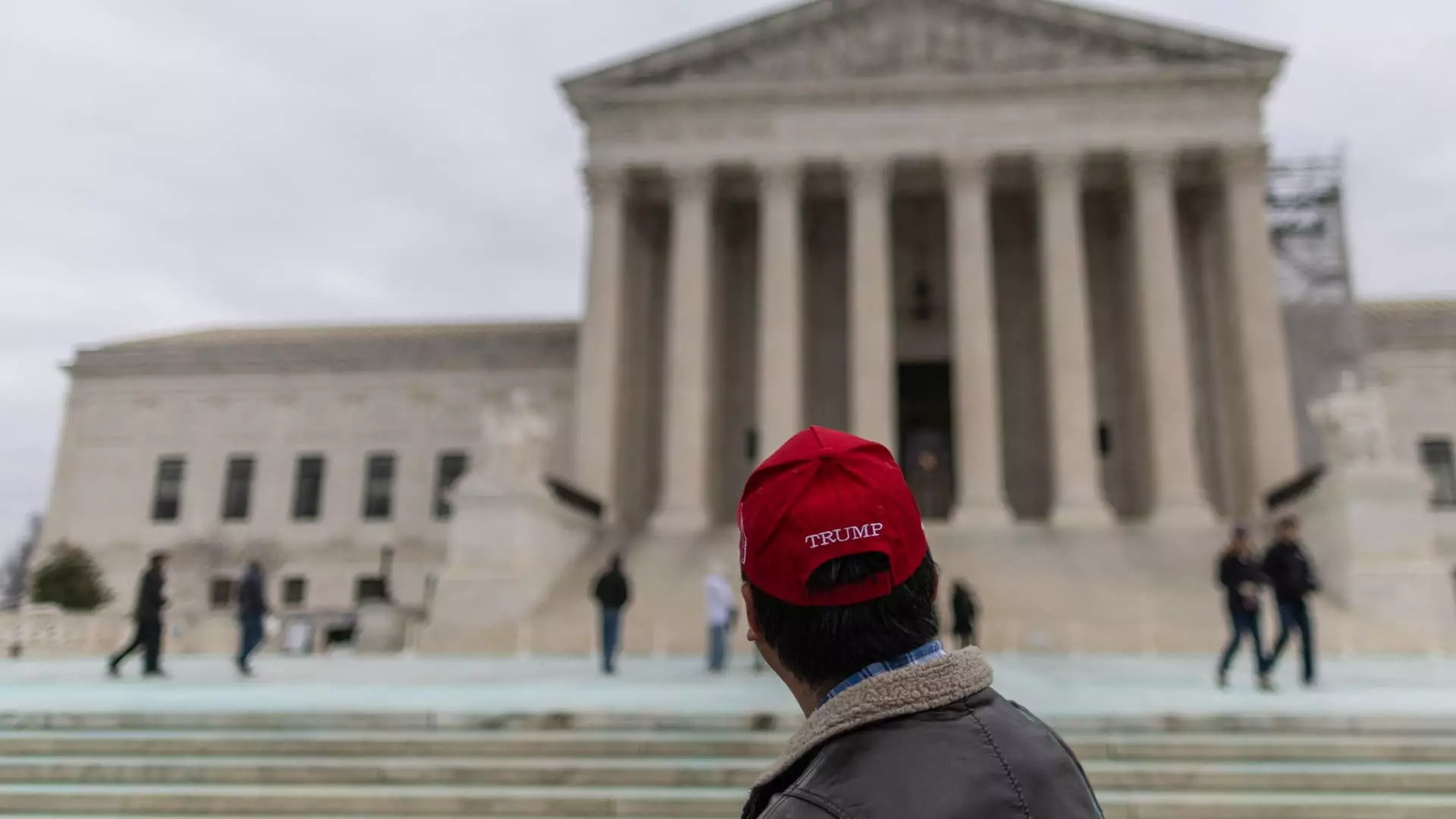In the evolving political landscape of the United States, the Trump administration’s recent decision to appeal to the Supreme Court for the dismissal of Hampton Dellinger, the head of the Office of Special Counsel, raises critical questions about the balance of power between the executive branch and legal protections for federal employees. This article seeks to unpack the implications of this appeal and what it represents in the broader context of government accountability and whistleblower protections.
The Office of Special Counsel is an independent federal agency tasked with safeguarding federal employees from retaliation, particularly those who expose misconduct or violations of law within their organizations. Hampton Dellinger, who was appointed during the Biden administration, argues that he can only be dismissed for legitimate job performance issues. The argument for reinstatement has its grounding in the legal specifics that associate whistleblower protections with broader civil service guidelines—an essential aspect of federal employment that ensures government accountability and ethical conduct.
The emergency appeal submitted to the Supreme Court signifies a significant legal confrontation between the Trump administration’s interpretation of executive power and established legal protections for federal employees. The appeal follows a divided appeals court’s refusal to vacate a lower judge’s order reinstating Dellinger temporarily, a situation that has opened the door for a broader dialogue about the limits and scope of presidential authority.
This particular case marks the first time since President Trump’s inauguration that the administration has turned to the Supreme Court to overturn lower court rulings, highlighting an aggressive legal strategy to reshape executive actions and policies that may be viewed as obstructive or counter to the administration’s agenda. The appeal represents not merely an isolated instance but a potential bellwether for future confrontations regarding federal employment practices and protections under adverse political climates.
Dellinger’s reinstatement is argued by many as a necessary measure to ensure that the federal workforce is protected from potential abuses of power. The Trump administration’s dismissal of Dellinger is concerning, especially in light of an extraordinary number of reported firings and dismissals of federal employees during Trump’s tenure. These actions challenge the longstanding protections enshrined within civil service law, which aim to protect whistleblowers from retaliatory measures.
The very existence of the Office of Special Counsel is predicated upon the notion that whistleblowers must be shielded to ensure that government functions with integrity. The administration’s aggressive efforts appear to contradict this foundational principle. If Dellinger’s appeal is ignored by the Supreme Court or if he is ultimately dismissed, it could set a dangerous precedent not only for whistleblowers but for civil service protections as a whole.
As the Trump administration pursues legal pathways to assert executive power, the American public must consider the ramifications of such maneuvers. A conservative-majority Supreme Court faces the task of balancing traditional interpretations of executive power with the constitutional rights afforded to federal workers. The potential acceptance of Trump’s appeal could lead to an expansion of executive privileges at the expense of established checks on power.
Additionally, the choice of actions taken by this administration demonstrates an underlying tension in how executive power is interpreted. Given that three justices currently sitting on the court were appointed by Trump, the decision-making process will be watched closely as it could reaffirm or undermine civil service structures that were designed to ensure accountability and integrity within federal operations.
The legal battles unfolding within this context are not merely about one individual’s job but resonate with broader implications for governance and accountability. The appeal to the Supreme Court serves as a litmus test for the treatment of federal employees, the robust nature of whistleblower protections, and the extent of executive authority.
As this case progresses, it is vital for stakeholders and citizens to remain informed and engaged. The outcomes of such legal disputes will help define the evolving relationship between government officials and the systems designed to hold them accountable, potentially setting precedents that will last well beyond the current administration.


Leave a Reply